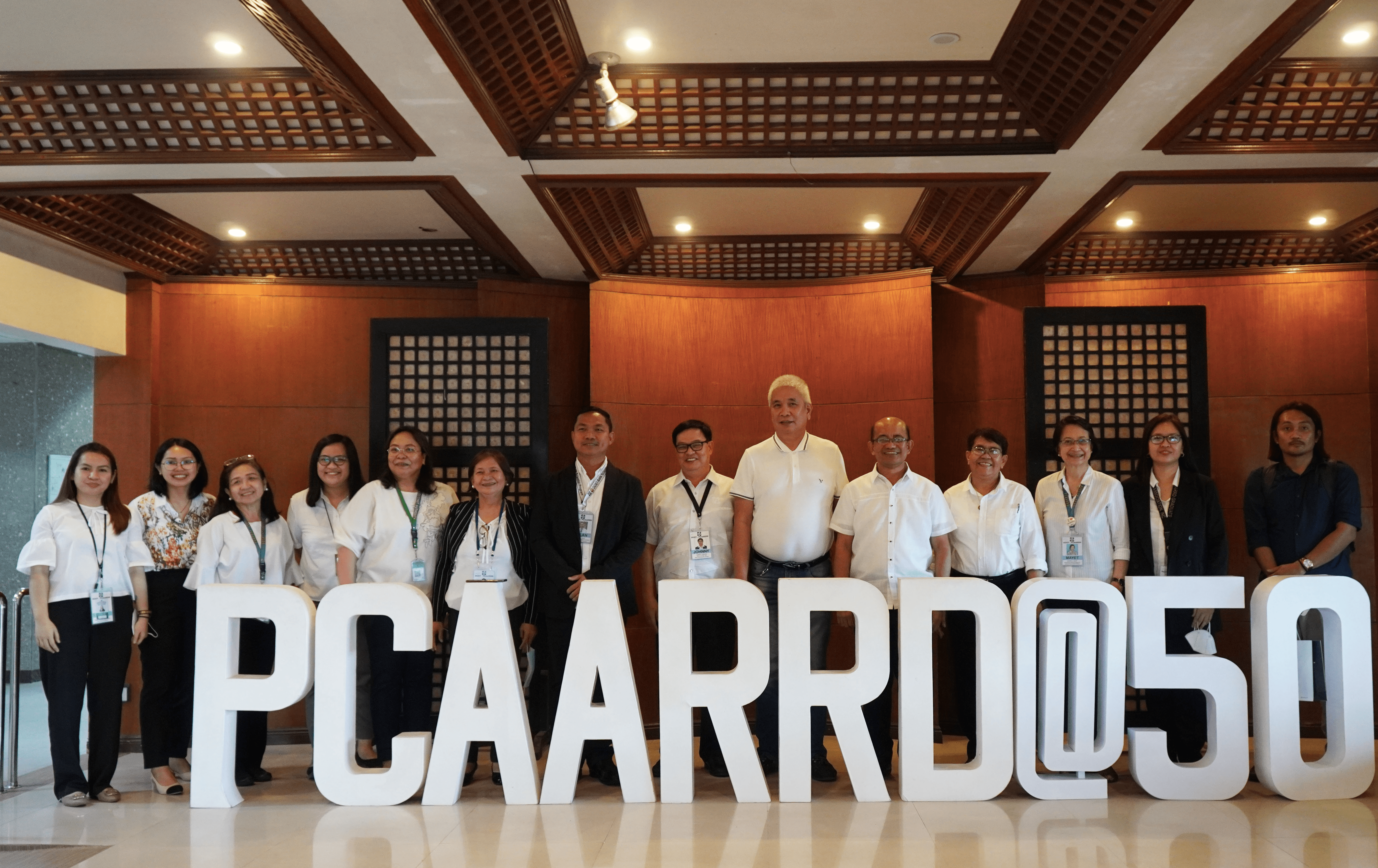Ensuring smooth implementation of the research component of the Coconut Hybridization Program (CHP) under the Coconut Farmers and Industry Development Plan (CFIDP) was the goal of a recent courtesy visit of the Philippine Coconut Authority (PCA) to the Philippine Council for Agriculture, Aquatic and Natural Resources Research and Development of the Department of Science and Technology (DOST-PCAARRD) headquarters in Los Baños, Laguna.
DOST-PCAARRD Executive Director Reynaldo V. Ebora, OIC Deputy Executive Director for Research and Development (R&D) Juanito T. Batalon, OIC-Director of the Crops Research Division Allan B. Siano, and other division directors and representatives welcomed PCA’s recently appointed administrator, Mr. Bernie F. Cruz, along with staff from the PCA and the Project Management Office (PMO) of CFIDP.

Executive Director Reynaldo V. Ebora (right) warmly welcomes Administrator Bernie F. Cruz (left) who visited DOST-PCAARRD for the first time to discuss the partnership for the Coconut Hybridization Program Research Component. (Image credit: Crops Research Division, DOST-PCAARRD)
In his message, Dr. Ebora recalled DOST-PCAARRD’s long-standing working relationship with PCA even before the implementation of the CHP. Both agencies have supported each other's programs and projects over the years, with the shared goal of strengthening the Philippine coconut industry. He cited the hybrid farms established in some areas of CALABARZON and the ongoing development of hundred-coconut-plantlet-producing Coconut Somatic Embryogenesis Technology (CSet) as two of the many testaments of this partnership.
Furthermore, Dr. Ebora stressed that he hopes for a sustained partnership to address the persisting supply and demand gap in coconut and provide a significant impact on Filipino coconut farmers.
Dr. Batalon echoed this message and added that he hoped for continued support for coconut R&D initiatives outside of CFIDP and hybridization. He also sought PCA’s help in addressing the issues and challenges on the Year 1 implementation of CHP.

DOST-PCAARRD Executive Director Reynaldo V. Ebora (left) and PCA Administrator Bernie F. Cruz (right) during the signing of the Data Sharing Agreement (DSA) for the Coconut Hybridization Program Research Component and turning over of the CFIDP book. (Image credit: Crops Research Division, DOST-PCAARRD)
PCA Administrator Cruz expressed his enthusiasm and gratefulness for the warm welcome of DOST-PCAARRD and affirmed the commitment of PCA to the Council. He also commended the Council for its readiness in the implementation of CHP, which was evident from its Year 1 accomplishments despite the delayed issuance of the budget last year.
The two agencies also inked a Data Sharing Agreement (DSA) for CHP Research Component to secure the sharing and protection of stakeholders’ information. Administrator Cruz also officially turned over a copy of the CFIDP book to Dr. Ebora.
The CHP is one of the programs of the CFIDP, which has 20% Trust Fund allocation, where 15% will be managed by PCA for the operations component and 5% will be managed by DOST-PCAARRD for the funding of R&D initiatives and projects on coconut hybridization.
DOST-PCAARRD and PCA will continue to work together in the coming years to develop hybrid coconut seed farms and nurseries for planting and replanting that will ultimately benefit the Filipino coconut farmers.

